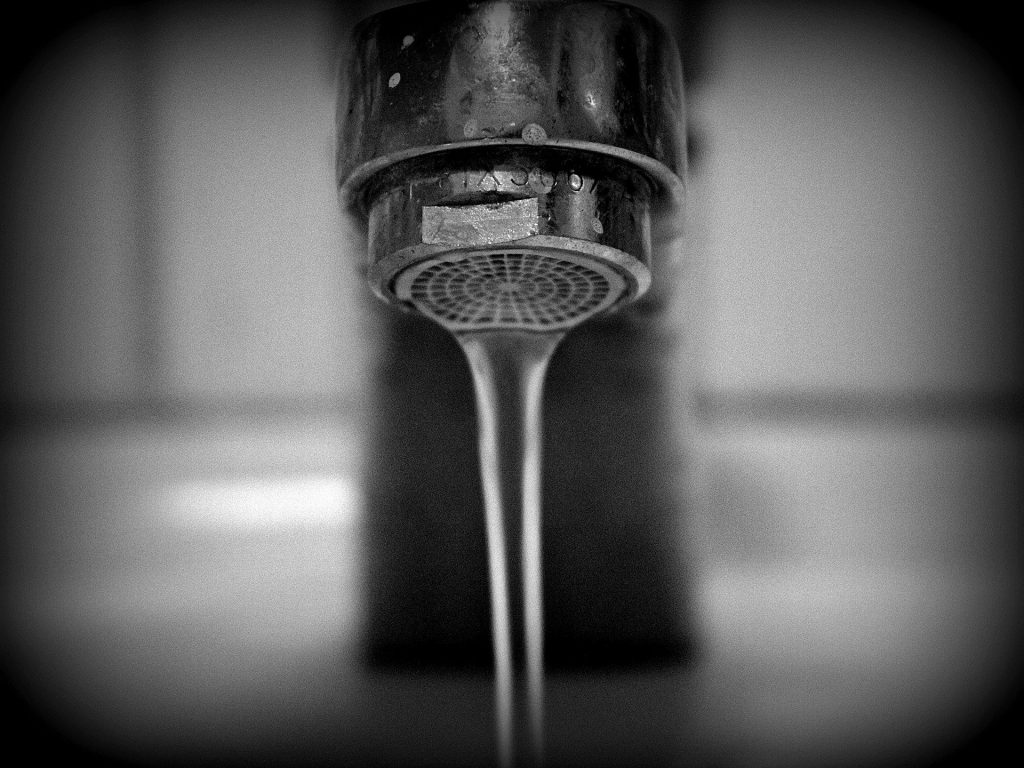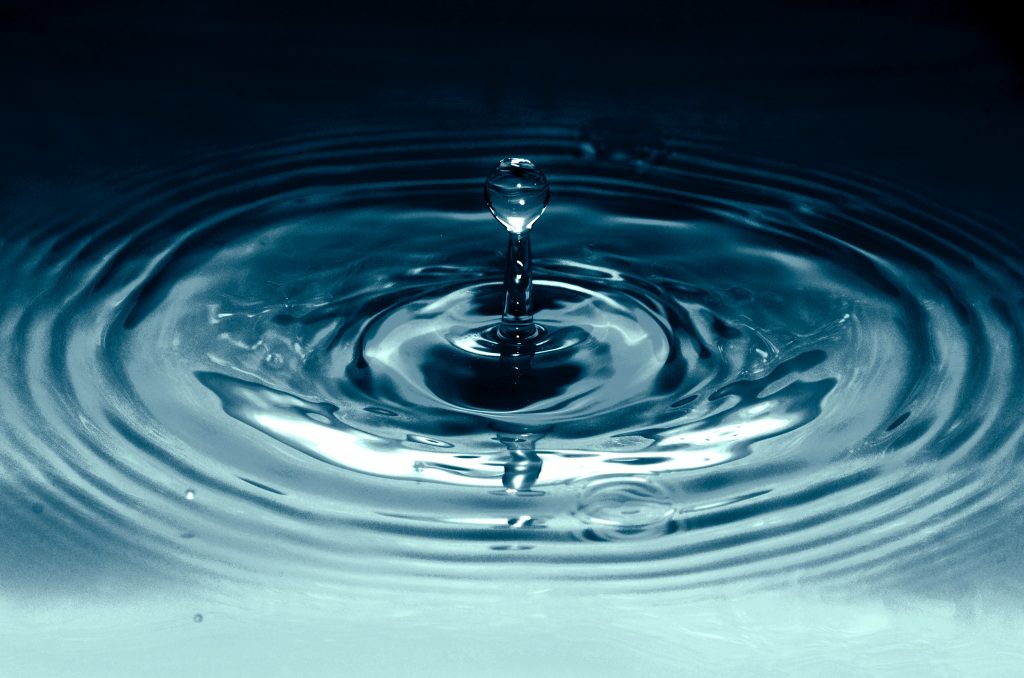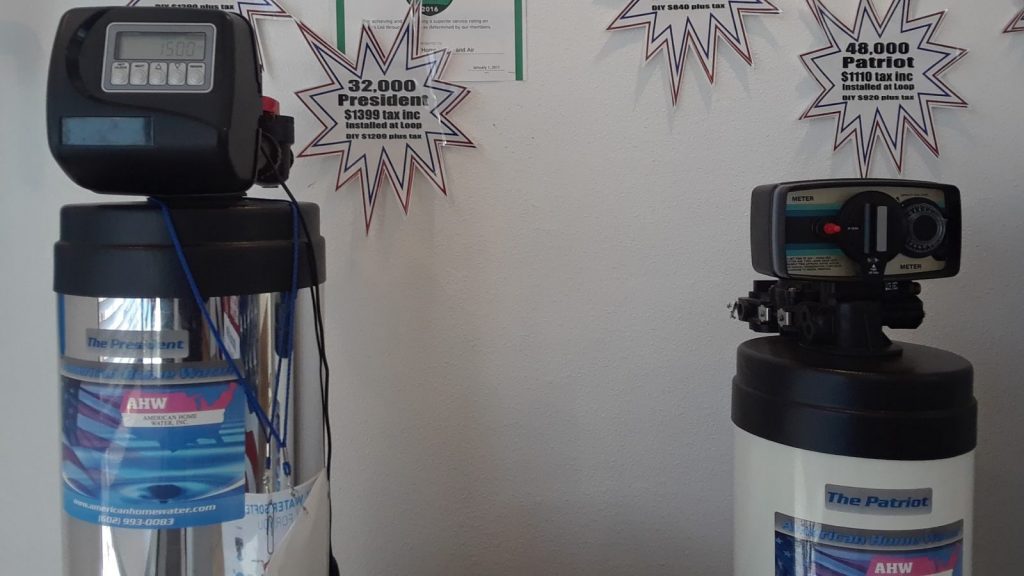The topic of reverse osmosis vs distilled water is one we come across fairly often at American Home Water and Air. There are many substantial differences between the two, however, that may influence which one you decide to use in your home.
In this post, we’ll take a look at the science behind distillation and the reverse osmosis process to establish a deep understanding of both.
Reverse Osmosis vs. Distilled Water: The Basics

Reverse osmosis is a filtration process that forces your water through a series of fine membranes. Our reverse osmosis systems in Phoenix consist of four or five-stage membranes that ensure almost no sediment or contaminants enter your family’s drinking water.
The main reason people install reverse osmosis systems in their homes is to provide clean drinking water for their families.
Distillation, on the other hand, is the process of boiling water, capturing the condensation, and allowing it to condense back into the water. After the water is distilled, impurities will be separated. Note that distillation is different from the process many municipalities recommend for purifying your water. Simply boiling the water will kill bacteria and microbes in it but it will not remove chemicals and other impurities like minerals.
Both distillation and reverse osmosis provide clean drinking water but only one (reverse osmosis) is practical for residential purposes.
Is Reverse Osmosis Water Distilled?
Now, you may be scratching your head. After all, both processes remove impurities and theoretically leave you with ‘pure’ water. So is reverse osmosis water distilled, and vice versa?
Nope.
When it comes to Phoenix drinking water, both filtration and reverse osmosis methods can be used to provide clean and safe drinking water if done correctly. One similarity between the two processes is that some people claim that the water produced using either method tastes “flat” This is because both processes remove minerals. Although this may be the case for some, the main focus for Phoenix drinking water should be the safety and cleanliness of the water produced.
Distillation, however, does not remove volatile chemicals like chloramines with the same effectiveness as reverse osmosis. Distilling water is a decent short-term solution (say, if you’re traveling and staying in a property that’s not yours) but reverse osmosis is the best long-term solution for pure drinking water at home.
The most accurate way to describe reverse osmosis water is filtered. Distilled water has been boiled and the condensation has been captured then turned back into the water.
Uses For Distilled Water vs. Reverse Osmosis Water
Still confused?
Things become a lot clearer when you consider what water commercially produced using either method is typically used for.
Bottles of distilled water are typically used for applications in which minerals would be an obstacle. You see, the water supply of most municipalities contains plenty of minerals. These minerals can adversely affect things like steam irons and indoor aquariums. Certain laboratory experiments also require distilled water.
Reverse osmosis water is primarily used for drinking.
Difference Between Reverse Osmosis and Distilled Water In Your Home
Residential water distillers do exist but they use a lot of energy and are much less common than reverse osmosis filters.
With a reverse osmosis filter, getting pure water is as simple as opening your faucet. The process runs without much input from you, whereas the distillation process is much more involved. Again, it’s not as simple as boiling the water and calling it a day as many people mistakenly believe. Distillation also typically produces quantities of water far less than what most people need.
For this reason, at American Home Water and Air, we carry and service reverse osmosis systems. It’s much more practical.
More About Minerals
Earlier, we mentioned that both reverse osmosis and distillation remove minerals from water. This leads to a common misconception. We covered it in great detail here but it’s also worth a brief exploration in this post.
High concentrations of minerals in water are not bad for your health but they do damage your plumbing and appliances. The reason steam iron manufacturers typically recommend that you use distilled water is that the minerals in straight tap water will build up inside the iron, causing clogs and other concerns. This also happens in pipes, showerheads, and dishwashers.
While the difference between reverse osmosis and distilled water is slim when it comes to mineral removal, neither process is efficient for every application you’d want mineral-free water for.
You wouldn’t, for example, connect a reverse osmosis system to your showerhead. Likewise, you wouldn’t use a water distiller to produce shower water. Either of these processes would be inefficient.
What you’d want instead is a water softener. These systems offer many benefits, the most impressive of which is their capability to produce enough soft water for your entire house.
Water softeners in Phoenix are especially key since the area is known for its mineral-rich water supply.
Many residents use these systems alongside a reverse osmosis filter. The water softener removes minerals while the reverse osmosis filter takes care of contaminants and chemicals.
Is Reverse Osmosis Water The Same As Distilled Water? Conclusion
In this post, we explored in great detail the topic of distilled water vs reverse osmosis water. To recap, both processes do purify water. Distillation, however, is energy-intensive and involves capturing the condensation of boiling water. Reverse osmosis, on the other hand, forces your water through a series of fine membranes to remove particles and chemicals.
Reverse osmosis is a much more practical solution for most consumers since it produces a greater amount of water more reliably. Accessing that water is as simple as opening your faucet.
Now that you know the difference between reverse osmosis and distillation, feel free to give us a call at American Home Water and Air for all your water filtration needs! If you’re looking for more information about the types of water you can consume and water quality, you can check out our article about deionized water.
Found this helpful? Check out Hot Water Heater Not Working? And our Phoenix plumbing careers page.
Frequently Asked Questions
Is it okay to drink distilled water?
You technically can drink distilled water. Nothing bad will happen to you. The taste may seem flat, though. The lack of minerals won’t hurt you either since most of our mineral intake comes from food and not water.
How do I make distilled water?
You need special equipment to produce distilled water. This equipment will boil the water, capture the condensation, and allow it to cool back into water.
Is boiled water the same as distilled water?
No. Boiling water will kill off the organic impurities in water but without the condensation capture process, the usefulness of this is limited.
What is distilled water good for?
Most people who use distilled water do so in appliances, equipment, and experiments that require highly pure water devoid of minerals.
Is reverse osmosis water the same as distilled water?
No. Reverse osmosis water is filtered and devoid of volatile chemicals. Distilled water is certainly purer than basic tap water but reverse osmosis gets the upper hand.
[related_posts_by_tax posts_per_page="3" format="thumbnails" image_size="medium"]









